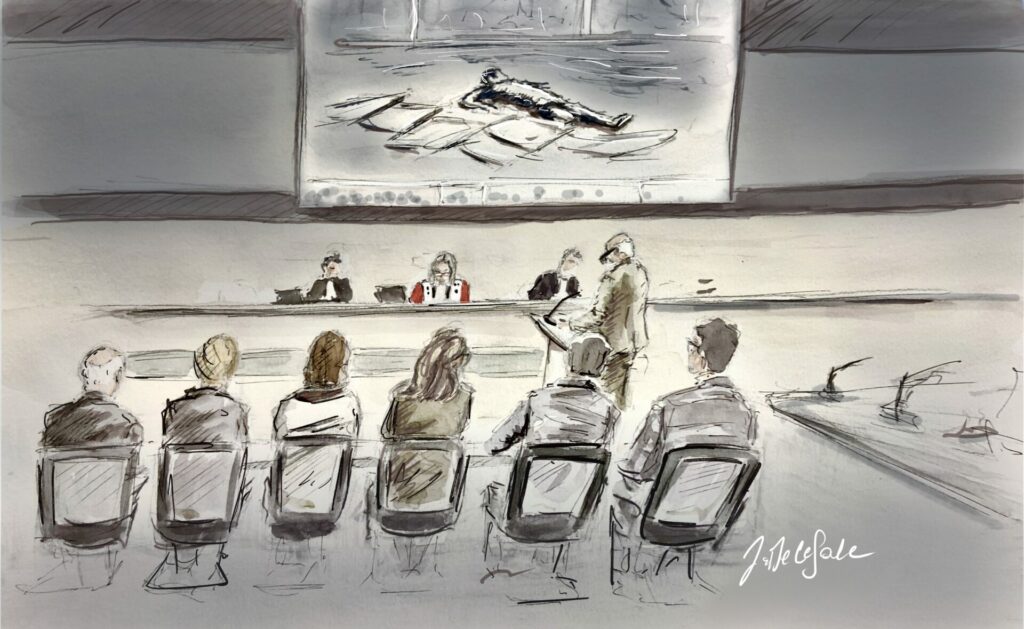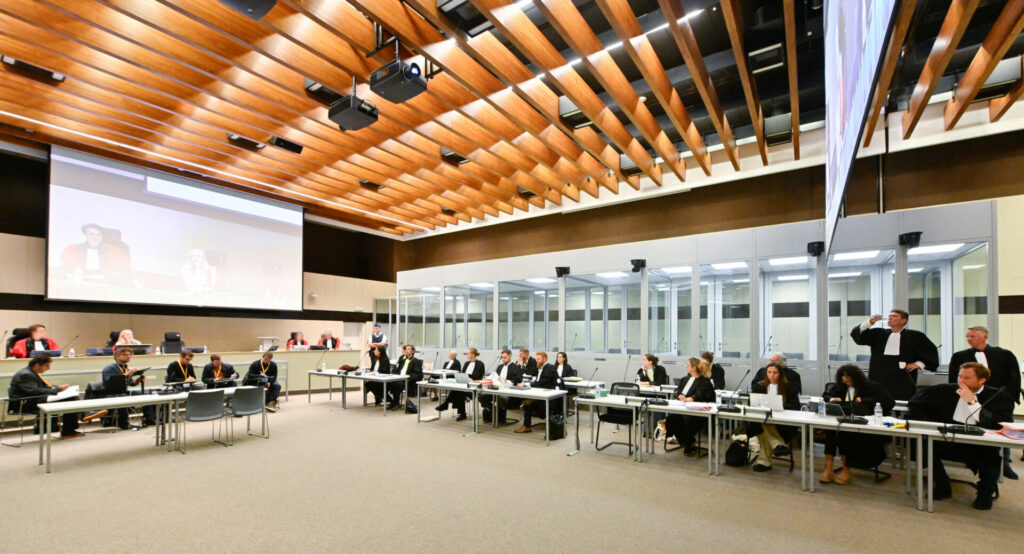Uncertainty about whether those standing trial for their role in the 22 March 2016 terror attacks in Brussels should be subject to systematic strip searches has been cleared up as the Federal Police Chief stated that any nude search must be preceded by an individual security assessment.
Last Thursday, the Brussels French-speaking court ruled that six men on trial may no longer be strip searched every day without good reason. If carried out without a clear reason, systematic nude searches constitute degrading treatment and therefore violate the European Convention on Human Rights, the judge ruled.
The government was given eight days to comply with the ruling. However, on Tuesday and Wednesday, some of the accused men refused to appear in court because they again had to undergo a strip search before being transferred to court – causing about 1.5 days delay to the trial.
Individualised risk assessments
While the Assize Court has no jurisdiction on the matter, its president Laurence Massart wanted a clear answer from the police about if, how and why these searches are still carried out. The Ministerial Directive published on 2 January does leave the possibility of strip searches "based on an individualised integral risk assessment," but fails to explain why the searches are currently required.
"Whether an accused person has to undergo a strip search depends on the daily security assessment of that individual," explained Mark De Mesmaeker, Commissioner-General of the Federal Police, adding that all conditions for the required justification of the searches are met.
"For each of the accused on trial, there is a file that paints an individualised and integral security picture," he told the court. "The competent officer in question has to update that every day, per detainee, in order to justify a nude search."
Massart then instructed De Mesmaeker to unblock those files and deliver them to the lawyers of the accused men. "The situation is serious. The continuation of this Assize trial depends on it. The police must obviously do their job according to the rules in force, but let's not turn it into a game of cat and mouse."

Drawing by Jonathan De Cesare. Credit: Belga/Jonathan De Cesare
Despite the request of the defendants' lawyers, she did not want to analyse the content of those documents as she is not qualified to do so. "If the content turns out to displease you, you should take it to another court."
Still, instead of continuing the Assize trial for the last two available hours of Wednesday, several of the defendants' lawyers first wanted to be able to see the police's justification for Tuesday's strip search, in order to judge whether they actually happened and if so, if they were justified.
The proceedings were suspended for the day with a stern warning for Massart to the defence lawyers: "If there are no strip searches tomorrow, I expect all your clients here. If there are strip searchers and you do not like the content of the document you receive about them, it is no longer my business. We will just continue with the process."
Related News
- Brussels attacks trial: Hearing suspended following new controversy over strip searches
- Brussels attacks suspect threatens to stop cooperating during trial
- Brussels attacks trial: Defendants sue Belgian State over conditions of transport to court
On Flemish radio on Wednesday morning, Sanne De Clerck, a lawyer for some of the victims of the March 2016 terror attacks, called on all parties to defuse the situation as soon as possible. "It is important that everyone takes responsibility in this story. The police, but also politicians. Justice Minister Vincent Van Quickenborne is responsible for the federal police. That, too, must be considered."
Additionally, she stressed that the lawyers of the accused should take responsibility: "I understand that they want clarity, but then it is again up to them not to unnecessarily inflame this and move on again. Meanwhile, the victims again have to wait for the trial to continue. The only thing the victims want is that we can move on. It is important to explain the impact this has on the victims."

